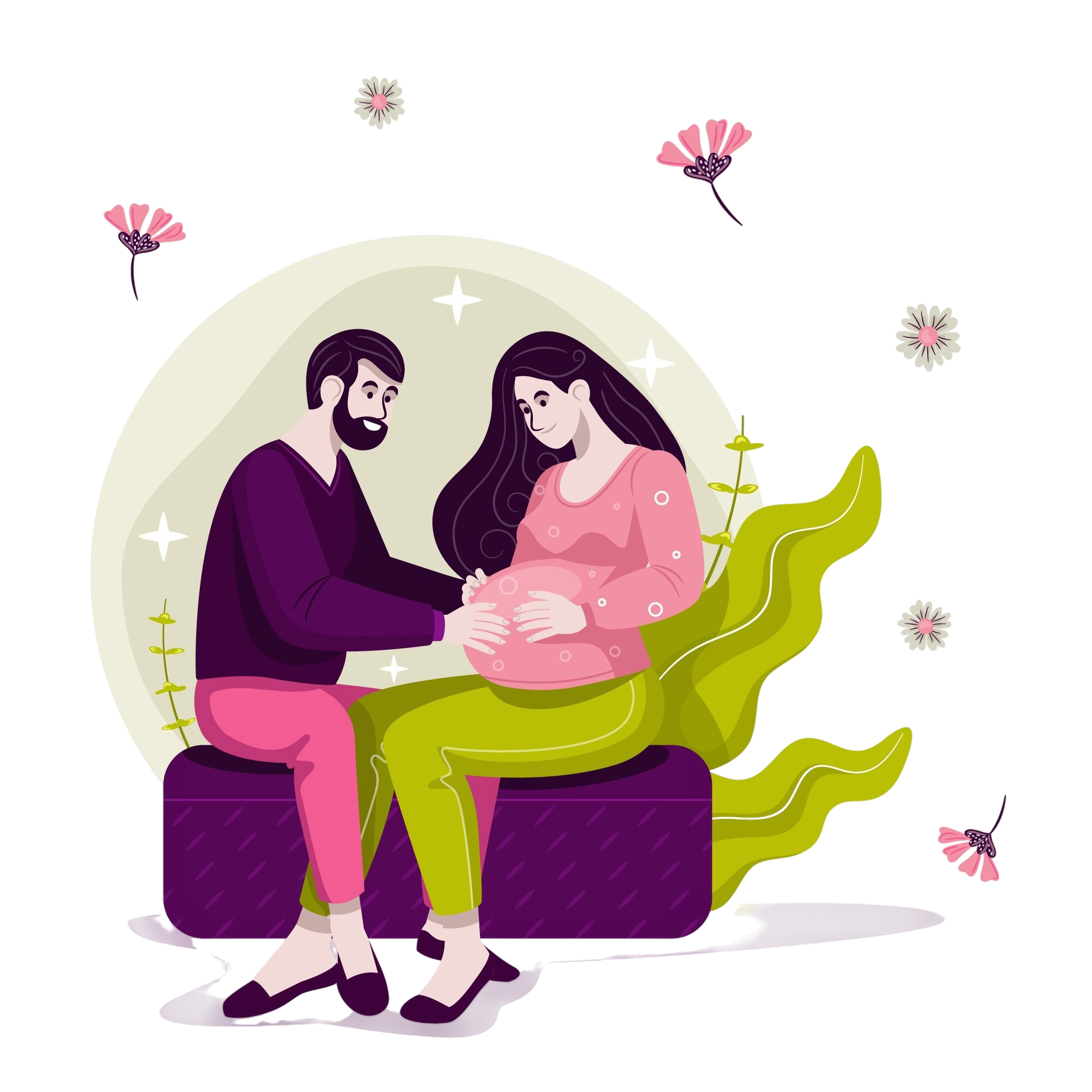Maternity Benefits in the UAE in 2024: Who is Eligible?
Get the Best Insurance Plan that fits for Your Need

Get a Quote for Insurance

What is Maternity Leave in the UAE?
Maternity leave in the UAE refers to the paid leave granted by employers to pregnant women or new mothers with full-time jobs. This ensures proper care, support, and well-being for the mother and the newborn during a critical period. Female employees can take a break from work, recover from childbirth, and care for their babies without quitting their jobs if they avail of maternity leave.
Who is Eligible for Maternity Leave in the UAE?
Should be working in an organization in a regular or permanent position (i.e. temporary employees are not eligible)
Both public and private sector employees are eligible
Completion of at least one year of service with the employer
Present a medical certificate from an authorized authority to confirm the pregnancy
Maternity Leave in the UAE Public Sector
The female employees of the UAE federal government or the local governments of each Emirate enjoy better maternity benefits than their private sector counterparts. However, the leave policies may vary among local governments. The details are as follows:
Maternity Leave in the Federal Government
As per Article 19 of the Federal Decree-Law No. 49 of 2022, a female employee in a permanent position is entitled to maternity leave of three months with full salary. After that, for 6 months from the date of the employee resuming work, she is entitled to 2 hours of reduced working hours to nurse her child at the beginning or the end of the working hours. Such breaks are fully paid for. According to Article 20, she is also entitled to a fully paid parental leave of 5 working days. The leaves may be taken continuously or intermittently within six months from the date of the child's birth. This leave is also granted to male employees. Maternity leave may not be combined with leave without pay.
Maternity Leave in Dubai
Maternity leave in the Dubai Government is regulated by Decree No. 14 of 2017 concerning maternity, miscarriage, stillbirth, and childcare leave for female employees of the Dubai Government.
The decree grants female employees 90 days of maternity leave starting from the delivery date. She may also apply for her maternity leave up to 30 days before the expected date of delivery. Annual leave and unpaid leave can be added to the maternity leave taking the maximum total number of days to 120.
After resuming work and for one year from the date of the baby’s birth, the mother is entitled to 2 hours’ reduced working hours to nurse her child, either at the beginning or at the end of the working hours. There is no nursing break for women during the month of Ramadan.
When a female employee gives birth to a baby with special needs, she will be granted childcare leave for the period from the expiry date of the maternity leave to the date on which her baby completes one 1 year of age.
Under the Dubai government’s human resources management law, men are also entitled to 3 days of fully paid paternity leave, to be taken within one month of the birth of the child.
Maternity Leave in Abu Dhabi

Maternity Leave in Sharjah
Maternity Leave in Ras Al Khaimah
In November 2016, the Ras Al Khaimah Government extended the maternity leave to 90 days of paid leave. Earlier in 2015, the nursing period was extended to one whole year from the birth of the baby.
How Many Days of Maternity Leave Are Granted in the UAE for the Private Sector?
The duration of maternity leave in the UAE for private-sector employees is different from that of the public sector. The provisions of maternity leave in the UAE for the private sector are as follows:
A female employee is entitled to a maternity leave of 60 days divided as follows:
45 days of fully-paid leave
15 days of half-paid leave
The employee may apply for her maternity leave up to 30 days before the expected date of delivery.
In addition to this basic maternity leave, she is eligible for an additional leave of 45 days without pay, if she has an illness due to pregnancy or childbirth, and is unable to resume work. A medical certificate issued by a competent medical authority is compulsory. These leave days can be either consecutive or intermittent.
If the baby suffers from a disability, the employee may take additional leaves of 30 days (fully paid). This leave can be extended for an additional 30 days without pay. The illness or disability of the child must be confirmed through a medical certificate issued by a competent medical authority.
After the female worker resumes work, she is entitled to one or two additional breaks each day for nursing her child. The duration of the two breaks must not exceed one hour. The woman is entitled to such breaks for 6 months following the date of delivery. Such breaks are fully paid for.

Understanding the Law for Maternity Leave in the UAE
The provisions for maternity leave in the UAE form part of Federal Law No. 28 of 2006 (i.e. labor laws). These laws deal with various employment-related issues such as terms & conditions of work, compensation, leave policies, termination procedures, etc.
In other words, this law provides a comprehensive legal framework concerning all labor-related issues. These provisions apply to both employers and employees, ensuring equal protection in the public and private sectors.
Earlier, female employees were entitled to only 45 days of paid maternity leave. However, the new labour law provides an additional 15 days of half-paid leave for the benefit of working mothers. This has extended the total duration of maternity leave in the UAE to 60 days.
How to Calculate Maternity Leave in the UAE?
Female employees in the UAE are entitled to receive full pay for the first 45 days and half pay for the remaining 15 days. In this context, pay refers to the employee’s gross monthly salary including basic salary and allowances. The normal daily wage is paid for the first 45 days and 50% of the normal daily wage is paid for the next 15 days.
What are the Benefits of Maternity Leave?
Maternity leave offers several advantages to new mothers and their employers. Some of the key benefits are as follows:
Taking a break from work during the critical period of childbirth enables a mother to heal from the pain and deal with any pregnancy complications without work-related stress or anxiety.
Free time forges a greater bonding between the mother and the baby. This ensures better postpartum mental health and lower infant mortality rates in the country.
The employees feel respected and valued by the organization. This can result in improved productivity and higher loyalty. It also helps employers to attract & retain good talent.
Better health of female employees can help corporates reduce their dependence on insurance and lower their expenses on premiums
Does Group Health Insurance Cover Maternity Care in the UAE?

Prenatal Care
Pregnant women require regular checkups, tests, training, and counselling. Screening tests such as ultrasounds, MRIs, blood tests, etc., help to detect health issues early, prevent miscarriages, and deliver a healthy baby. High-risk pregnancies may require additional care.

Hospitalization
Hospital stays, childbirth procedures, surgeries, and medicines entail additional expenses to ensure safe delivery and protect the mother and the newborn

Postnatal Care
The first 6 to 8 weeks after childbirth is the postnatal period. The mother and child require proper care during the postpartum period. The care primarily includes physical screening, mental health screening, home visits by health providers, medication, and occupational therapy.

Neonatal Care
If the baby is born premature or suffers from any illness or congenital defects, it may require special care. This involves additional costs for screening tests, hearing tests, ICU, medication, and vaccines.
Frequently asked questions onMaternity Leave in the UAE
What is paternity leave in the UAE?
Paternity leave refers to the break offered by employers to their male employees who are fathers of newborns. This enables new fathers to spend sufficient time with their families, bond with the baby, and alleviate the mother’s hardships after childbirth. Paternity leave is a paid leave in the UAE.
What is another word for maternity and paternity leave?
Maternity and paternity leave are often referred to as parental leave indicating gender neutrality.
How many days is maternity leave for husbands in the UAE?
Male employees working in UAE’s private sector are eligible for five days of paid paternity leave within six months of their child’s birth. Those in the public sector can avail of three days of paid leave. Weekends are excluded from the count for paternity leave.
Is maternity insurance mandatory in Dubai?
Yes. Under Dubai health insurance laws, medical insurance policies must include maternity coverage. It is also mandatory for employers to provide such coverage to their employees.
Is maternity leave paid or unpaid?
Maternity leave in the UAE is a paid leave. Female employees are entitled to receive full pay for the first 45 days and half pay for the remaining 15 days.
Can I resign while I am on maternity leave in the UAE?
Yes. You can resign from your job while you are on maternity leave. However, you may be required to serve a notice period as per the terms & conditions of your employment contract.
Can maternity leave be extended in the UAE?
Yes. Maternity leave in the UAE can be extended under special circumstances. It can be extended to 90 days if you face any complications during pregnancy or delivery. Women who have difficult childbirth get an additional 15 days of fully paid leave. An additional 30 days of fully paid leave is granted if the child is born sick or disabled.
When can I apply for my maternity leave in the UAE?
Maternity leave in the UAE begins 30 days before your expected delivery date.






